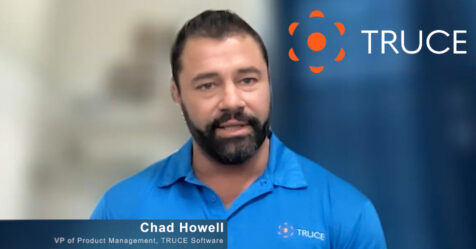The gloves are off.
In-house cleaning operations and building service contractors (BSCs) often come out of their corners to defend their titles, and prove to those betting on them for best results that they are indeed the true champions of clean.
In the fight to keep the facilities they clean from going the outsourcing route, in-house operations glean their prize-cleaning skills — from detailed cleaning based on occupants’ needs, to increased awareness of building security.
At the same time, BSCs attempt to knock aside in-house “competition” by playing up their strengths — from specialized resources to a disciplined pay scale — to facility owners.
According to some industry pros, the current outsourcing economic model is driven by an intensity in which things that used to be perceived as sacred and impossible to outsource are now being outsourced with increasing frequency.
Read on, as an in-house supervisor and a BSC put up their dukes to defend their roles in the industry.
A clean match? You decide.
In-house
Are you going to be prepared to explain the benefits of in-house cleaning versus outsourcing when the time comes?
There are, in fact, distinct and clear advantages to cleaning in-house.
Preparation is the best strategy as we look toward the future, and understanding the comparative benefits of in-house operations versus outsourcing operations is a good place to start.
In-house cleaning can afford a facility the following five benefits:
- Ownership
- Security
- Stability and turnover
- Benefits
- Value-added service
1. Ownership
Several years ago, late at night, I had to the opportunity to visit a state capitol building. The cleaning staff was not aware that I was in the building, but it was obvious through their actions and level of cleanliness of the facility that they claimed ownership for the building — and for the quality of their work.
2. Security
If the facility employee cleans a particular building day in and day out, working for the company that owns the buildings and the items in the building, the individual has a vested interest in making sure things are secure and safe.
Cleaners often prevent thefts within a facility — and certainly minimize the possibility of thefts — being able to identify certain happenings as being “out of place”, and subsequently alerting security personnel.
3. Stability and turnover
Constant change can cause mistakes, confusion and concern among many building occupants, and in-house custodians provide a reassurance that the work will occur as “normal”.
Stability and continuity add value to the in-house cleaning operation.
In-house employees tend to have greater tenure, or years of service in a facility, than employees of contract cleaners. One industry survey indicated that contract cleaners are liable to have turnover rates as high as 75 percent.
The stability offered by in-house cleaners is a real benefit to customers as they know whom to contact, when and where.
4. Benefits
If the outsourced employees have decreased benefits, what will eventually happen to the benefits of the in-house employees? What will happen to a cleaner’s pay? If the outsourced employees are paid less, will in-house pay be adversely impacted?
5. Value-added service
What the in-house cleaner possesses that the contract cleaner does not is the every day knowledge of the customer’s needs and that of the building in which they work. n
Alan S. Bigger, B.S., M.A., R.E.H., is director, Building Services, University of Notre Dame, and Linda B. Bigger, B.A., B.S., is a freelance editor.
Building Service Contractor
Making the case: BSCs do it better — and with far superior staff
Unless the contract cleaning firm is very small or very poorly run, it’s no contest… contract cleaning has so many advantages that it’s almost unfair.
As opposed to an in-house cleaning operation, a good contract cleaning firm with expertise in the type of building being cleaned can do it far cheaper, far better, and eliminate human resources headaches and liabilities with regards to cleaning staff. Why is this?
Here are five basic reasons:
- Specialization
- Additional resources
- Specialized back-up support
- Market discipline
- Client is out of the employment business
1. Specialization
Specialized expertise that is more difficult for an in-house operation to gain includes:
- Labor estimation and work loading
- Knowledge of the latest methods, equipment and supplies
- Sophisticated employee training and motivational programs
- Well-trained supervisors
- Quality-control programs, including measures on quality and client satisfaction
- Safety programs
Specialization means that not only does the contractor do it better, he can attract better-qualified people. The career path within a contract cleaning firm for persons starting at or near the ground floor is far superior to that of an in-house operation; seldom does an in-house director of custodial services move beyond that level in their company’s organization.
2. Additional resources
In addition to continuously evaluating new products, cleaning practices, and environmental policies, the larger contract cleaners also have buying power for supplies and equipment that their clients may lack.
3. Specialized back-up support
As for staffing back-up, if the contractor has a significant presence in the city, he can far more easily cover hourly staff shortages and the loss of a key supervisor or on-site manager than an in-house operation.
4. Market discipline
If the contractor pays above market, his competitors will show that the same quality of work can be provided at a lower cost by paying market wages.
Assuming the client enters a performance contract, i.e. a guaranteed fixed price for a given specification, the contractor must control his costs and improve his productivity to ensure he earns a profit. Without profit, he goes out of business.
If an in-house operation runs over budget, there is little the in-house company can do other than replace their in-house manager — but, what guarantee is there that the replacement will perform any better?
5. Client is out of the employment business
- Workers compensation costs
- EEOC claims
- Wrongful dismissal and sexual harassment claims
- Staff turnover and related costs of recruiting, pre-employment checks, training, and additional administration
When all these advantages are put together, the case for outsourcing a building’s cleaning is overwhelming.
Selection of a contractor is a value decision — weighing up price versus quality, and consistency of service… a topic for another article!
Graeme Crothall is founder, president and CEO of GCA Services Group, Inc., West Conshohocken, PA.


